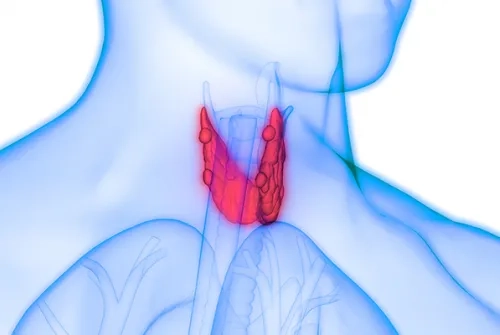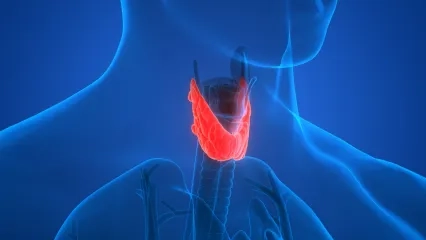Alo Yeditepe
Alo Yeditepe
Graves' Disease
It is an inflammation of the thyroid gland that the body develops on its own, that is, that occurs without the entry of a bacterium or virus from the outside. The good news about Graves is that the risk of cancer is low, which means that it is a benign disease. The bad news is that it is chronic, that is, it continues for years, and in approximately 1/3 of the patients, the disease hits the eyes and causes the eyes to protrude. A licensed physician should closely monitor patients with Graves’ disease. Because the disease can sometimes flare up, the patient may need to take medication or increase their dose if they are taking medication.
In patients with Graves' disease, it may be necessary to surgically remove the thyroid when growth begins in the eyes, but this issue is controversial. Because even if surgery is performed in late cases, the disorder in the eyes does not improve and becomes permanent.
What are the Symptoms of Graves' Disease?
The symptoms of Graves' disease are the same as those associated with overactive thyroid (hyperthyroidism). As the metabolism accelerates, weight loss occurs, sleep rhythm is disrupted, excessive mobility, inability to stay in place, palpitations due to the rapid functioning of the heart, and the need to go to the toilet increases due to the rapid functioning of the intestines. In addition to these findings, approximately 1/3 of the patients have enlargement of the eyes and forward dislocation. This is a serious condition. The only solution is to surgically remove the thyroid gland from the body when the enlargement of the eyes begins. After this surgery, the enlargement of the eyes stops, and some regression can also be seen.
Does Every Thyroid Disease Stand Out?
Apart from Graves' disease, no thyroid disease hits the eyes and does not cause disease in the eyes. This is unique to Graves. However, it should be well known that any kind of enlargement in the eyes does not mean Graves' disease, it can have different causes.
How is Graves' Disease Diagnosed?
Diagnosis is made by measuring the proteins (TRAB) that stimulate the thyroid gland in the blood. In patients with Graves' disease, the values of these proteins in the blood will be high.
How Is Graves' Disease Treated?
There are three different options in the treatment:
- Medications that suppress excess thyroid hormone.
- Application of radioactive iodine.
- Removal of the thyroid gland by surgery.
The answer to the question of which of these to choose contains significant differences according to the patient and the severity of the disease. An endocrinologist or endocrine surgeon can only give the correct answer.
Is Graves' Disease at Risk of Cancer?
First of all, it should be understood that Graves is not a type of cancer. It is an inflammation that the body starts on its own. The risk of cancer is low. Patients with Graves' disease should avoid disrupting the follow-up of their disease rather than cancer.
This content was prepared by Yeditepe University Hospitals Medical Editorial Board.
”
See Also
- What is a Parathyroid Adenoma? Symptoms and Treatment
- What is Calcitonin Hormone? Calcitonin Hormone Deficiency
- If the Size of the Thyroid Nodule is Over 4 cm, Be Cautious!
- How Does High Calcium in Blood Cause Complaints?
- A First in the Literature: Parathyroid Cell Obtained from Thyroid Stem Cell
- Diagnosis in Thyroid Diseases
- Assessment of Hyperthyroidism
- Hashimoto's Thyroid Disease
- Thyroid Tumor (Cancer)
- Thyroid Nodules
- Thyroid Surgery
- Assessment of Hypothyroidism
- What is the Harm of High Calcium in the Blood?
- Frequently Asked Questions in Thyroid Diseases
- Atomic Therapy (Radioactive Iodine Therapy)
- Which Thyroid Nodule Can Be Treated Without Surgery?
- She Was Relieved of Her Pain When the Missing Parathyroid Gland Was Found in The Chest Cavity
- Thyroid Storm Can Turn Life Upside Down
- Recovered From Thyroid Nodule with Needle Melting Method
- Stress Triggers Thyroid Diseases; These Occupations Are At Risk!
- Turkish Physician Developed a Novel Method for Parathyroid Transplant
- What Should Be Considered After Parathyroid Surgery?
- Parathyroid Diseases and Treatment
- They Said It Was Thyroid Cancer, But It Turned Out to Be Parathyroid Adenoma!
- The Frequency of Thyroid Nodules and Thyroid Cancer in Young People is Increasing!
- Thyroid Cancer Treatment Is Possible Without Removing The Entire Thyroid Gland
- Thyroid Storm
- T4 Hormone in 13 Headings
- Questions About Thyroid Diseases
- Thyroid Diseases
- Goiter (Thyroid Gland) Biopsy
- Radiofrequency Therapy in Thyroid Nodules
- What Is Autoimmune Hypoparathyroidism or Hypocalcemia?
- What Is The Loss of Low Calcium Level in Blood?
- What Is The Symptoms of Calcium Level Elevation (Hypercalcemia)?
- How It Is Made The Parathyroid Adenoma Operation?
- What Is Parathyroid Hyperplasia?
- Parathyroid Tumors
- What Are The Parathyroid Glands?
- The Incidence of Thyroid Cancer Has Increased! There is Turkey in the Research!
- Key Surgery Performed In Turkish Hospital For First Time
Alo Yeditepe






